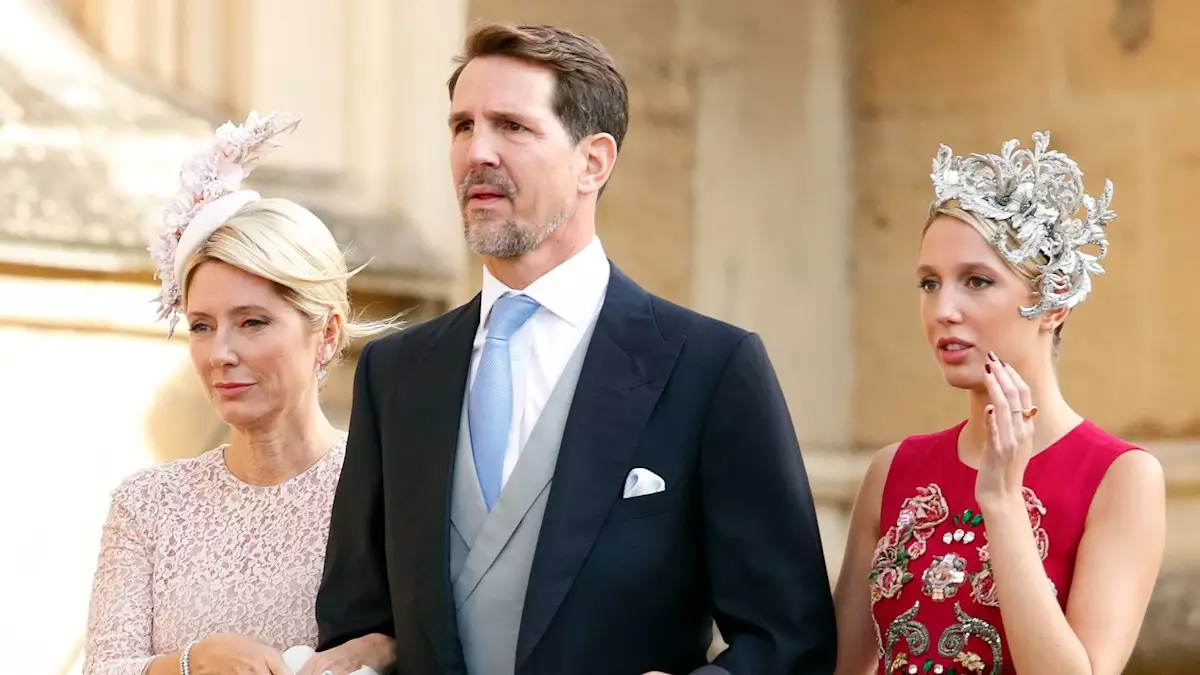The saga of the Greek royal family is one steeped in historical significance and emotional resonance. Following decades of upheaval and change, the descendants of Greece’s last monarch are undertaking a momentous journey to reclaim their citizenship and, by extension, their connection to the land that was once their sovereign domain. The decision to acknowledge Greece’s current republican status, fifty years after the monarchy’s dissolution, marks both a pivotal and reconciliatory chapter in this narrative.
The Greek monarchy, which lasted for over a century, came to a traumatic end in the early 1970s. King Constantine II, who ruled from 1964 until the monarchy’s abolition in 1973, witnessed some of the most tumultuous years in Greek history. His rule found itself in conflict with a military junta that executed a coup in 1967, effectively ousting him from power. As he attempted to rally forces to counteract this takeover, he faced an uphill battle that culminated in his exile. The controversial circumstances of his reign have left a lasting legacy marked by both admiration and discontent among the populace.
In 1994, the fallout from these events became palpably evident when the Greek government stripped the royal family of their citizenship. This action was a powerful symbol of the public’s desire to move away from the historical monarchy, a painful reminder of a past that many Greeks wished to leave behind. However, this very past continues to tug at the royal family’s identity and that of their descendants.
In a recent, significant development, several members of the Greek royal family have formally accepted the current republican status of Greece. This gesture is more than just a symbolic act; it illustrates their willingness to embrace the country’s present and future, stepping away from the shadows of their royal heritage in favor of a citizenship firmly grounded in contemporary Greece. By adopting the surname ‘de Grece’—French for ‘of Greece’—the family signals a new identity that aligns with their aspirations to reconnect with the nation.
However, the reinstatement of their citizenship is contingent upon bureaucratic processes rooted in formal governmental approval. The pending decision requires publication in the official government gazette before any family members can apply for new identity documents, a process that reflects both the complexities of modern governance and the enduring authority of the state over royal claims.
The attempts to regain citizenship come as Greek society grapples with the historical implications of the monarchy’s rise and fall. Public sentiment toward the monarchy is varied; although many Greeks regard the royal family as relics of a bygone era, there remains an undercurrent of nostalgia, particularly among older generations. In the eyes of some, the past decisions surrounding the monarchy carry intrinsic significance that transcends the simple abolition of regal titles.
Athanasios Balerpas from the Interior Ministry encapsulated this perspective by stating that a “historically pending matter is being resolved,” suggesting that the royal family’s efforts may not simply encompass personal benefits but also offer a pathway to national healing and reconciliation. As they navigate these turbulent waters, the royal family must contend with the intricate balance of honoring a rich heritage while acknowledging contemporary realities.
Despite the tumult of their public identity, the Greek royal family is experiencing personal milestones that evoke a sense of continuity. The recent marriage of Princess Theodora to her partner Matthew Kumar showcases accomplishments that transcend political discourse—a celebration of love that resonates deeply with their supporters. The couple’s wedding received a warm reception from the public, illustrating that despite the monarchy’s formal end, the family continues to retain a place in the hearts of many Greeks.
The joy displayed during these celebrations contrasts sharply with the somber reflections on their royal status, showcasing the depth of the familial bonds within the de Grece clan. Crown Prince Pavlos’s interactions with the public during this event may signify a revived commitment to a more integrated role in Greek society, bridging the gap between royal nostalgia and contemporary citizenship.
The potential reclamation of citizenship by the Greek royal family represents a bold step forward into a new narrative. As they seek to integrate into the fabric of modern Greece, the complexities of their lineage and past will undoubtedly remain contentious topics. However, with their new surname and acknowledgment of republicanism, the family is poised to embark on a journey that could redefine their relevance in Greek society.
The unfolding story of the Greek royal family embodies the broader themes of reconciling history with current identities. As they forge ahead, the royal family continues to be a part of Greece’s intricate tapestry—one that offers both memories of grandeur and aspirations for unity and progress.

Leave a Reply